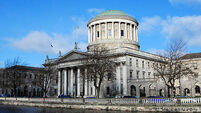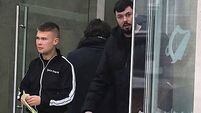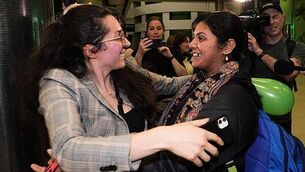Judge to consider admissibility of ‘decisive’ evidence in Soldier F prosecution
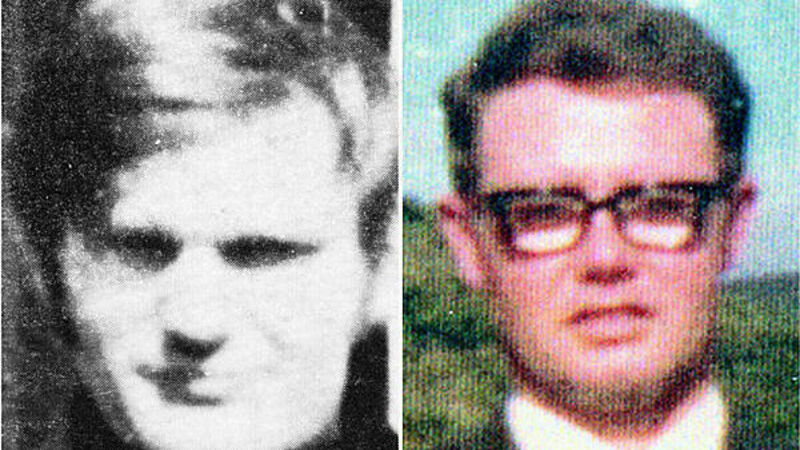
By Rebecca Black, PA
A judge has risen to consider whether “decisive” evidence in the prosecution of a former British paratrooper for two murders in Derry in 1972 is admissible.
It comes after three days of submissions at Belfast Crown Court following a hearsay application by the prosecution to admit a number of statements made by other soldiers on the ground during the shootings known as Bloody Sunday.
These statements include claims that their colleague fired shots at Glenfada Park North on January 30th, 1972, the day when members of the British army's Parachute Regiment shot dead 13 civilians in Derry following a civil rights march.
Soldier F, who cannot be identified, is accused of murdering James Wray and William McKinney.
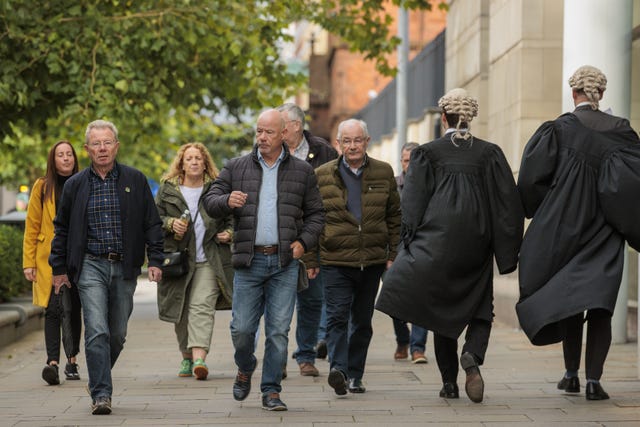
He is also charged with five attempted murders during the incident in Derry’s Bogside area, namely of Joseph Friel, Michael Quinn, Joe Mahon, Patrick O’Donnell and a person unknown.
He has pleaded not guilty to the seven counts.
Prosecution barrister Louis Mably KC has argued that statements given by Soldiers G and H to the Royal Military Police (RMP) on the night of the shootings, and to the Widgery Tribunal in 1972, is the only evidence “capable of proving” Soldier F fired his rifle at civilians in Glenfada Park North.
Defence barrister Mark Mulholland KC, acting for Soldier F, described the statements as a “house of cards”, claiming the contents are “contradictory, unreliable and inadmissible”.
“It is a house of cards that seems to evolve from a starting point of assumptions wrongly made to mistakes, and at the very worst mendacity,” he told the court.
He also said the court is “hamstrung” by the lack of surviving records around the statements and inability to cross-examine soldier G, who is deceased, and H, who has indicated he will invoke his right against self-incrimination if summoned to attend the trial.
Judge Patrick Lynch thanked the prosecution and defence for their oral and written submissions, and said he intended to deliver a ruling on the applications next Wednesday morning.
The trial opened on Monday and heard statements of a number of people present at the shootings, including former Stormont MP Ivan Cooper, who had organised the preceding civil rights march through Derry.
Soldier F is attending court each day of the non-jury trial, behind a curtain to protect his anonymity, while members of the Wray and McKinney families and supporters watch on from the public gallery.
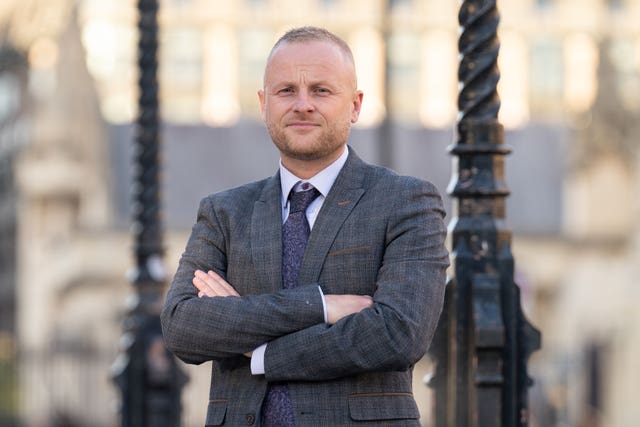
Veterans Commissioner for Northern Ireland David Johnstone has been observing the case while supporters of Soldier F gather outside the court.
Police have also maintained a presence on each day of the trial.
Meanwhile, a letter written to the judge by loyalist activist Jamie Bryson has been passed to the Director of Public Prosecutions.
It came after Judge Lynch raised concerns around a social media post by Mr Bryson on Thursday.
He said of that post that had it been a jury trial as opposed to judge-only, there may have been an application to discharge the jury.
But he said, given that he was the judge of the facts, the views expressed by Mr Bryson about the case in the post would not present a risk of serious prejudice, adding Mr Bryson’s views were of “total indifference as far as this court is concerned”.
At the start of Friday’s hearing, Judge Lynch said a letter from Mr Bryson had been forwarded to him, but he had deleted it without reading it, and even also deleted it from his deleted folder.
He described the move as “entirely inappropriate” that anyone would attempt to contact a judge mid-trial, adding that Mr Bryson, who has a law degree, “should know about its impropriety”.
The judge said not knowing what was said in the letter, it “does not have any hearing on my capacity to deal with this case”.
He asked that the prosecution pass the letter to the director of the Public Prosecution Service for possible onward transmission to the Attorney General to consider whether there was any contempt of court.
